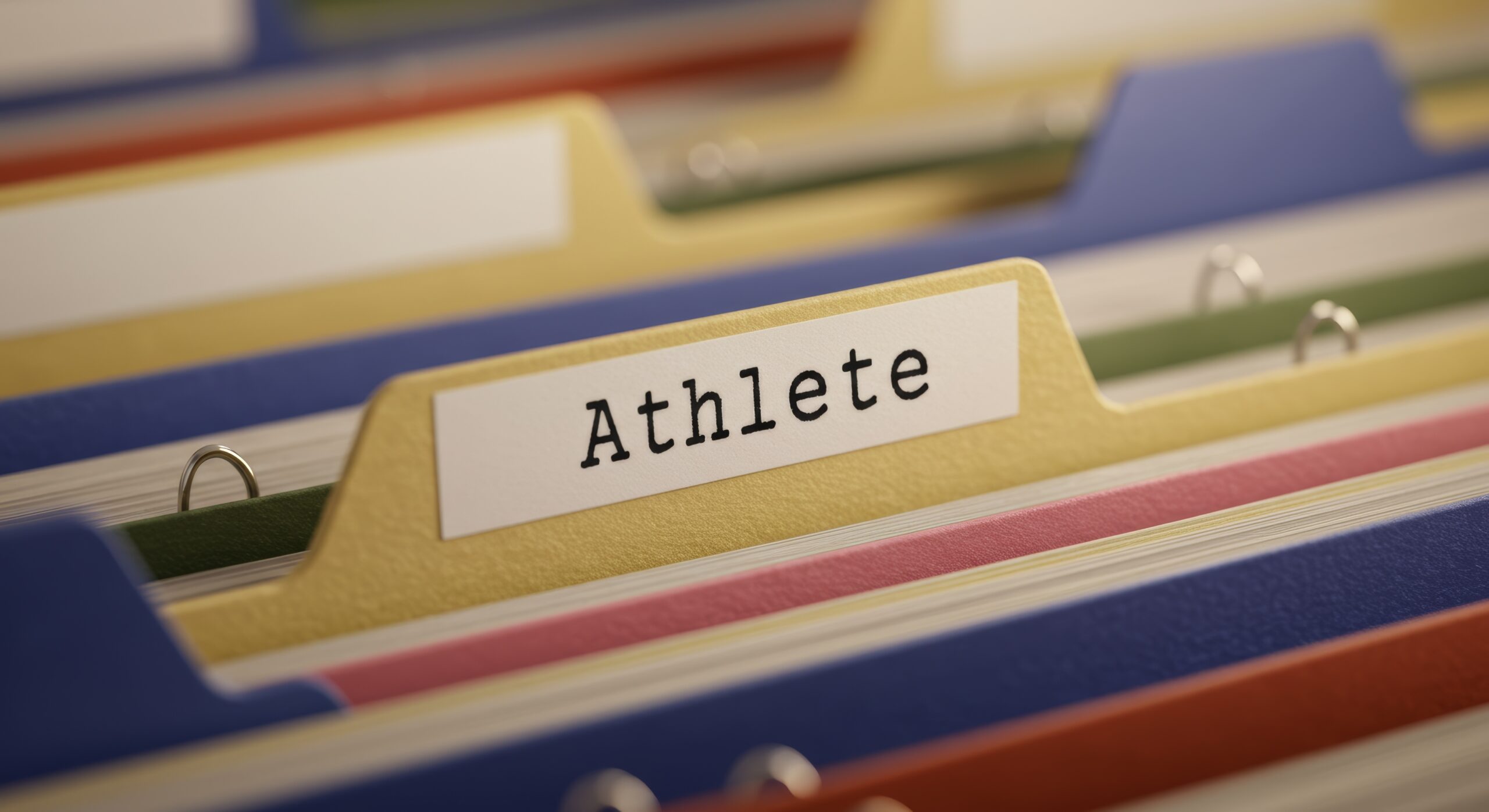Understanding the Jock Tax: What NIL Athletes Need to Know About Multi-State Income
College athletes are starting to earn real money through deals like endorsements, brand partnerships, and paid appearances. With this income comes new responsibilities, especially when it comes to taxes. One question that often causes confusion is whether student-athletes owe state income tax when they earn money outside their home state.
This issue is sometimes linked to what’s known as the “jock tax.” The term refers to state income taxes that may apply when athletes earn money in multiple states. While the concept is more common in professional sports, it is now something college athletes may need to think about.
PMG Private NIL works closely with athletes to help them stay compliant with tax laws and financial reporting rules. The company focuses strictly on taxation, compliance, and reporting. As NIL income grows, understanding tax obligations is essential. Staying informed could help athletes manage risks and protect their earnings.
What Is the Jock Tax?
The “jock tax” is a term used to describe the income tax that athletes may owe to states where they earn money while working or performing. In sports, this often means that an athlete may have to file a tax return in any state where they play games and earn income. For example, if a college or professional football player plays in California and receives NIL income tied to that event, California may require them to pay state income tax on a portion of that money.
The jock tax started in the early 1990s. California enforced it first, and other states soon followed. Today, most states with an income tax have similar rules. This tax is not just for professional athletes. It can also apply to entertainers, public speakers, or anyone who works and earns income across state lines.
The rules can be complex because each state has its own tax laws. Some states have no income tax at all. Others have strict filing requirements. For athletes earning income from different locations, it is important to know where and when to file. Understanding how the jock tax works can help reduce confusion and prevent potential issues with state tax agencies.
Do NIL Athletes Fall Under This Rule?
Determining whether NIL athletes fall under the jock tax rule involves several factors and does not have a straightforward answer. Student-athletes do not receive payment from their schools for playing games. However, many earn income through sponsorships, endorsements, appearances, and other related activities. These earnings may create tax obligations in more than one state.
For instance, if a student-athlete travels to a different state to take part in a paid promotional event, that state might require them to file a non-resident tax return. Similarly, participating in a photo shoot or commercial for a national brand outside their home state could result in taxable income sourced to that location. Each state has its own rules about taxing income earned within its borders, especially for non-residents.
Because of this, NIL athletes might face tax responsibilities in multiple states depending on where their income is earned. Understanding these potential obligations can be complicated. Working with tax professionals familiar with multi-state taxation and NIL income can help athletes navigate these issues carefully. This approach can assist them in managing compliance while focusing on their athletic and personal goals.
How NIL Income Differs from Pro Athlete Salaries
Professional athletes usually have formal contracts that clearly state where they perform and how much they earn. Their salaries are often linked to the number of games played in different locations. Tax agencies in various states use a method called the “duty day” approach to determine how much tax is owed based on the time spent working in each state.
NIL athletes, however, often have income that is less structured and more varied. They may not travel as frequently as professional athletes, but income earned from activities in other states can still create tax obligations. For example, if a student-athlete participates in a paid event or creates content in a state other than their residence, that income might be taxable in that state.
It is important to understand that being an NIL athlete does not exempt one from multi-state tax rules. Tax authorities focus on the location where income is earned rather than the athlete’s professional status. Therefore, NIL athletes may need to consider tax filing requirements in multiple states, depending on their activities and income sources. Consulting tax professionals familiar with these rules can help manage these responsibilities effectively.
Common NIL Scenarios That Could Trigger the Jock Tax
Student-athletes often engage in various NIL activities that extend beyond their home state. These opportunities can be exciting and rewarding, but they may also come with unexpected tax responsibilities. It is important to understand how state tax laws might apply when income is earned in multiple locations. Even everyday NIL deals could raise tax concerns if they involve out-of-state activity or travel. Here are some examples to consider:
- Out-of-State Promotional Events: If an athlete travels to another state to attend an autograph signing or host a sports clinic for payment, that income could be taxable in the event location.
- National Advertising Campaigns: A brand might run a marketing campaign involving athletes from multiple states. If an athlete participates in a photo shoot in a state other than their residence, they might owe taxes there.
- Social Media Collaborations: If a company hires a student-athlete to create content while visiting a particular state, that activity could also create income sourced to that state.
- Merchandise Sales: If an athlete has a personal brand or sells branded products and those products are shipped from or sold in other states, it might lead to tax reporting duties in those states.
These examples show that NIL athletes must be aware of how and where they are earning their income.
How States Handle Jock Tax Rules
Each state approaches taxation differently, especially when it comes to income earned by non-residents. For student-athletes with NIL income, this can create confusion and unexpected obligations. Knowing how individual states treat out-of-state earners is a key part of staying compliant. Since tax laws are not the same everywhere, it is important to look closely at where and how income is earned. Here is how some states handle these rules:
- States like Florida and Texas have no personal income tax, so jock tax concerns are not an issue there.
- States like California, New York, and Illinois have aggressive tax rules and may require filing even for small amounts of income earned in the state.
- States may have reciprocal agreements that exempt certain non-residents from taxation, depending on their home state’s policies.
Because of these differences, NIL athletes should not assume their home state’s rules apply everywhere. A small oversight can lead to penalties or back taxes if ignored.

The Role of PMG Private NIL
PMG Private NIL helps student-athletes navigate these complex tax challenges. While PMG is not an investment firm and does not provide investment advice, it focuses solely on taxation, compliance, and financial reporting. PMG’s expertise allows athletes and their families to understand their obligations and avoid potential issues with multi-state taxation.
The firm provides guidance on how NIL income should be reported, what documentation is needed, and when to consider filing non-resident tax returns. The team also helps athletes track income sources to determine if and where state taxes may apply.
Protective Steps Athletes Can Take
Managing taxes across multiple states can feel overwhelming, especially for student-athletes new to NIL income. However, there are ways to stay ahead of potential problems. Taking a proactive approach to tax planning may help athletes avoid filing errors and reduce the chance of unexpected costs. Small steps taken early can make a big difference later. The key is to stay organized, informed, and prepared. Here are a few helpful strategies:
- Track All Income by Location: Always record where services were performed, especially for paid appearances or media projects.
- Understand State Laws Before Traveling: Before doing any NIL work in another state, research whether that state imposes income taxes on non-residents.
- Work With Tax Professionals: Consult with tax advisors familiar with NIL and multi-state income to ensure accurate reporting.
- Keep Contracts and Receipts Organized: Maintain copies of all agreements, travel details, and payment records to support any required filings.
- Plan Ahead for Tax Payments: Budget for possible tax liabilities in other states so that there are no surprises at filing time.
These steps can help reduce confusion and limit potential risks.
Why This Matters for Future NIL Growth
As the NIL market expands, more student-athletes will participate in opportunities across state lines. Conferences may host events in various regions. National brands may collaborate with athletes in multiple states. These activities will likely raise additional tax considerations.
Understanding tax laws now can help athletes maintain eligibility and protect their finances. Ignoring these rules may lead to legal or financial issues in the future. PMG Private NIL encourages student-athletes to be proactive in addressing tax obligations and planning for long-term success.
Taking the Next Step: A Thoughtful Approach to NIL Finances
NIL income can open exciting doors, but it also comes with real tax responsibilities. The jock tax might not affect every athlete, but it could apply based on where and how income is earned. Ignoring these rules can lead to stress, confusion, and costly surprises.
PMG Private NIL helps athletes navigate this complex space with personalized support focused on taxation, compliance, and financial reporting. We specialize in keeping athletes informed, organized, and prepared.
Don’t wait until tax season to get answers. Take control of your NIL journey now by working with professionals who understand the unique challenges of multi-state income. With the right guidance, you can stay compliant and focus on your game.
Have questions about your NIL income and tax exposure? Contact PMG Private NIL to learn how we can support your success.




